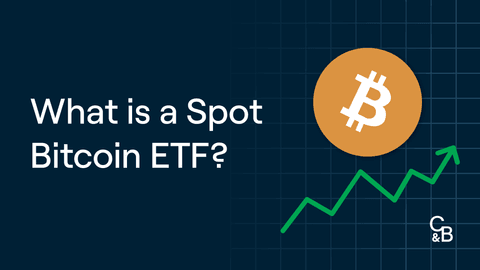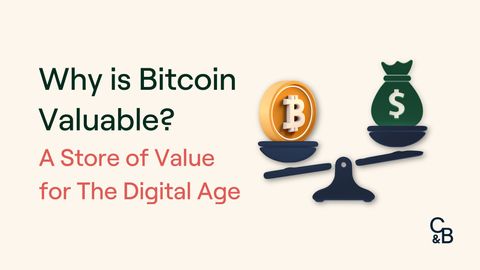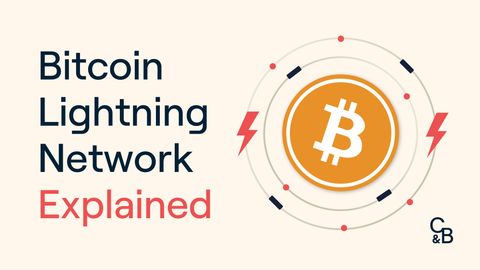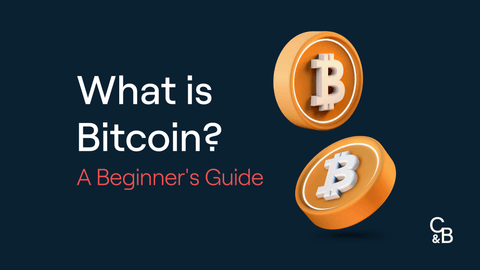Many of us are familiar with the saying “Money makes the world go round”, yet very few of us have ever sat back to wonder why this is the case, and how we as humans interact with this technology we have created. Those who have grown up in the post ‘Nixon Shock’ era (whereby the US dollar was no longer pegged to gold) have come to accept that a government-mandated currency is the only form of money maintaining permanence in our lifetime.
However, history tells us a very different story, a story where over time various forms of money have come and gone and the ramifications of this for those who chose different monetary systems should have taught us valuable lessons.
Recommended reading: The Philosophy of Bitcoin Part 1
The Value Of Money
Money provides the foundational basis for making economic decisions for society and between individuals. The ability of money to preserve its value and quality over time is a pivotal factor in giving humans the capability to plan and invest over multi-generational time horizons. If the money being used is known to lose value over time it makes it difficult for individuals to be confident investing over larger timeframes and hence heightens time preferences. These time preferences weave their way into the fabric of a society and govern the decision making of the collective and the individual down to the smallest of details.
Higher time preference induced behaviours, which can be a result of the incentives the monetary system possess, can manipulate humans into seeking out instant gratification. This can make economic planning difficult and can lead to a misallocation of resources and human energy. A daunting example of this can be seen from the hyperinflation case during 1920s Weimar Germany, whereby workers demanded to be paid each morning so they could instantly trade their Marks for anything of material value. This was due to the rapidly decreasing purchasing power of their currency which prevented them from planning for the future.

This is where Bitcoin steps in and takes aim at shifting the monetary system and therefore the human incentives that govern economic behaviours. Users of a fixed-supply monetary system are rewarded the longer they 'save,' or as it is more widely called in the cryptocurrency industry, 'hodling.’ By holding onto Bitcoin, individuals forego instant consumption and should be rewarded the longer they delay spending their coins. This highlights how a change in the monetary system and its incentives can correspondingly change human behaviours as a result.
By knowing that with Bitcoin the purchasing power of your money does not decrease with time (the opposite can be said with fiat currency) it lowers one’s time preference therefore allowing the individual or organisation to make economic decisions with a much greater time horizon. These sorts of economic decisions that begin with the individual will form part of the greater collective, creating a gradual shift in the psyche of humanity, the way we engage with economic transactions and ultimately the way we live going forward.
Globally, around 2 billion people still do not have access to a bank account and, given the world we live in, those who do not have a bank account are both passively and actively discriminated against. In the sense that those without bank accounts are unable to access a plethora of opportunities, this greatly influences both spending and saving habits.

The inability to safely store the currency that an individual is meant to be denominating their wealth in can strip them of any confidence in the longevity of that wealth. Bitcoin fundamentally can fill this void, as individuals who are excluded from the financial banking system can still access their coins through a secure wallet, accessible to anyone with a stable internet connection. We have seen this already changing the lives of many in Nigeria, Venezuela, El Salvador, and India. With Bitcoin and the cryptocurrency ecosystem, you become your own bank and gain access to all the opportunities provided by banking, minus the gatekeepers.
Another key issue which Bitcoin addresses is the lack of transparency found commonly in banks and financial institutions. With the world becoming increasingly digitised, the dependence consumers have on electronic transactions has never been greater. The European Central Bank reported that in 2020 the ratio of electronic transactions compared to paper-based transactions was 15:1.
As the world continues to make this transition, the lack of transparency becomes more of a pressing issue, with individuals never really knowing how secure their savings are or if the banks that we trust have reserves that are running dangerously low.

Blockchain technology uses a public record of every transaction to be kept and displayed for everyone to see. Once these transactions are validated, they live on the blockchain forever with no chance of a third party being able to change or reverse the transactions.
This means that no centralised entity or malicious party possesses the ability to manipulate your spending and that a trustworthy and known record of immutable transactions will be kept forever. This process also removes the need for intermediaries who add unneeded costs to the transaction; this is clear when looking at the Market for Remittances where over 20% of funds that should be going to those in need are taken by intermediaries. This is made even more shocking when you consider that the Global Remittance market in 2021 was worth over $700 billion. This money should be in the hands of those who need it most, made possible by Bitcoin and its underlying technology.

Bitcoin fixes a lot of things, namely speed, inefficiencies, privacy, trust, intermediaries, energy, corruption, theft and inflation. With this technology still in its early stages of adoption, there are certain shortcomings such as only being accepted by a small group of online merchants, fluctuating valuations, the fact that wallets can be lost, and limited buyer protection.
Though as adoption grows exponentially, we can be certain that Bitcoin will have a huge impact on the world as we know it.
Catch up on part 1 of The Philosophy of Bitcoin
Disclaimer: This assessment does not consider your personal circumstances, and should not be construed as financial, legal or investment advice. These thoughts are ours only and should only be taken as educational by the reader. Under no circumstances do we make recommendation or assurance towards the views expressed in the blog-post. The Company disclaims all duties and liabilities, including liability for negligence, for any loss or damage which is suffered or incurred by any person acting on any information provided.

.jpg?u=https%3A%2F%2Fimages.ctfassets.net%2F4ua9vnmkuhzj%2F7meVnT2vnQelBrt6W5yw73%2F8469fbdea8168e404fff363b35dd65a4%2FBitcoin_Halving-01__1_.jpg&a=w%3D480%26h%3D270%26fm%3Djpg%26q%3D80&cd=2023-01-10T02%3A22%3A06.649Z)
.jpg?u=https%3A%2F%2Fimages.ctfassets.net%2F4ua9vnmkuhzj%2FuIaUbUNRbO1LdljRWKvoI%2Fd93965ff275cd47f8c19fcc71edcd42e%2FBitcoins_Market_Cycle_V3-01__1_.jpg&a=w%3D480%26h%3D270%26fm%3Djpg%26q%3D80&cd=2023-02-21T06%3A17%3A39.793Z)



